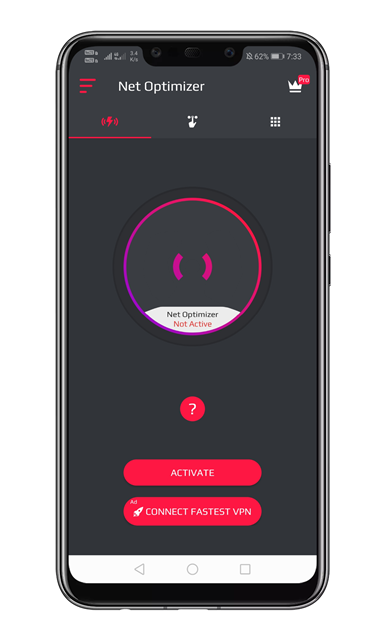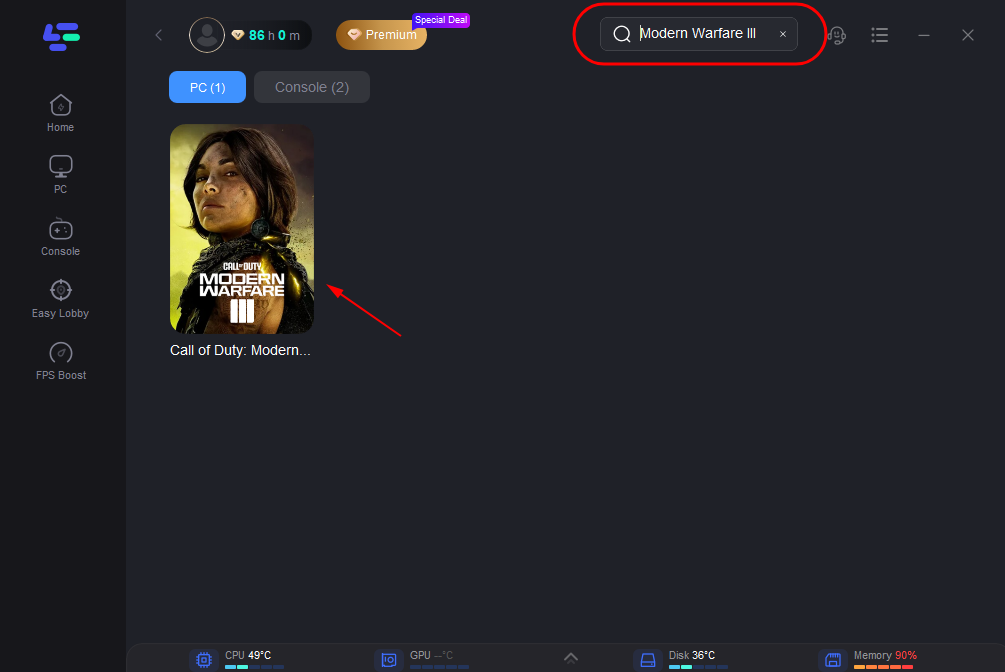How to Reduce Lag in Online Games - Enhance Your Gaming Experience with These Effective Tips
In online gaming, lag can significantly hamper your experience, making gameplay frustrating and less enjoyable. If you've ever wondered how to reduce lag in online games, you're not alone. Many players seek effective methods to improve their connection quality, smooth out gameplay, and maximize their gaming potential. This comprehensive guide explores various strategies, from technical adjustments to hardware upgrades, that can help minimize lag and elevate your online gaming experience. Whether you're a casual gamer or a competitive player, understanding how to reduce lag in online games is essential to staying ahead.
Understanding the Causes of Lag in Online Games

Before diving into the solutions, it’s important to understand what causes lag. Lag typically results from issues related to your internet connection, hardware limitations, or game server problems. High latency, bandwidth issues, and packet loss are the main culprits disrupting seamless gameplay. Recognizing these causes enables you to target the right solutions effectively.
What Contributes to Lag?
Lag can stem from various factors including slow or unstable internet connections, outdated hardware, or overloaded servers. Network congestion during peak hours can also cause delays. Hardware limitations like insufficient RAM or outdated graphics processors can contribute as well. Additionally, distance from the game server impacts latency. Understanding these factors provides insight into how to reduce lag in online games.
Impact of Network and Hardware on Gaming Performance
Your internet’s upload and download speeds play a vital role in maintaining smooth gameplay. A slow connection or high ping rate results in noticeable delays between your actions and game responses. Similarly, hardware performance influences frame rate and game stability. Outdated or underperforming components can cause lag spikes, so upgrading hardware or optimizing settings may improve gameplay.
How Server Distance Affects Lag
Connecting to a game server that’s geographically distant increases latency, causing noticeable lag. Choosing servers closer to your location, or switching to servers with less traffic, can significantly reduce lag. Multiplayer games often provide server selection options—using these can improve your connection quality dramatically.
How to Improve Internet Connection for Better Gaming

Enhancing your internet connection is one of the most effective ways to reduce lag. Several steps can be taken to improve speed, reduce latency, and ensure a stable connection, all of which are crucial for smooth online gameplay.
Optimize Your Network Settings
Modifying network settings can help prioritize gaming traffic and reduce lag. For example, enabling Quality of Service (QoS) on your router ensures that gaming packets get priority over other data. Additionally, configuring your DNS settings for faster resolution may improve connection times. Regularly updating firmware ensures your router operates efficiently and securely.
Use a Wired Ethernet Connection Instead of Wi-Fi
Wi-Fi connections are prone to interference and instability, which can cause lag spikes. Switching to a wired Ethernet connection provides a direct, stable link to your router, reducing latency and packet loss. Use high-quality Ethernet cables and ensure your network equipment supports gigabit speeds for optimal performance.
Close Background Applications and Streamlining Network Usage
Many applications running in the background, such as downloads or updates, consume bandwidth and increase lag. Closing unnecessary applications before gaming helps free up bandwidth and system resources. Also, limit the number of devices connected to your network during gaming sessions to prevent congestion and reduce lag.
How Hardware and Software Modifications Can Help Reduce Lag
Upgrading hardware components and optimizing software settings can significantly impact your gameplay performance. Whether it’s your gaming PC or console, ensuring they are well-maintained and configured properly is essential.
Upgrade Your Hardware for Smoother Gameplay
Investing in better hardware, such as faster RAM, an SSD, or a more powerful graphics card, can help your system handle online game processes more efficiently. An SSD reduces load times and improves overall responsiveness, while higher RAM allows for smoother multitasking. If your internet hardware is outdated, consider upgrading your router or adding a network booster.
Adjust In-Game Settings to Reduce Lag
Lowering graphic settings like resolution and detail reduces the load on your system, leading to fewer lag spikes. Disabling V-Sync and reducing anti-aliasing can further improve performance. Enable network-specific options such as “limit ping” or “reduce latency” if available. Tailoring these settings for your hardware ensures a balance between visuals and performance.
Regular Software Updates and Driver Maintenance
Keeping your operating system, game client, and drivers up-to-date is crucial. Manufacturers release patches to improve performance and fix bugs that may cause lag. Regular updates to graphics drivers and network adapters ensure optimal compatibility. Running maintenance tools like disk cleanup and defragmentation also improves system responsiveness.
Special Tips and Tricks to Minimize Lag During Gameplay
Beyond technical adjustments, there are practical tips gamers can implement immediately to reduce lag during play. These strategies can provide a quicker response in real-time situations, giving you an edge over lag-related disruptions.
Use Gaming VPNs for Better Server Access
Certain gaming VPNs can route your traffic more efficiently, reducing latency by connecting you to less congested servers. They can also help bypass regional restrictions or connect you closer to your game server. However, choose a high-quality VPN compatible with gaming to avoid adding extra lag.
Optimize Your Gaming Environment
Clearing your gaming environment of interference, such as other wireless devices, can prevent connection issues. Position your router centrally in your home for better signal distribution. Make sure your gaming device has sufficient cooling to prevent overheating, which affects performance.
Monitor Network Usage in Real-Time
Using tools that monitor your network in real-time helps identify bandwidth-hogging activities. During gaming, you can pause large downloads or streams, ensuring your connection remains dedicated to gaming traffic. Many routers offer built-in bandwidth management features that can be customized for optimal gaming performance.
Special Tips and Tricks
- Use a wired connection whenever possible, as Ethernet is more reliable than Wi-Fi.
- Opt for game servers that are geographically closer to you to decrease ping.
- Limit background devices and applications that consume network resources during gaming.
- Regularly reboot your modem and router to refresh your internet connection.
- Use quality gaming peripherals like low-latency mice and headsets to improve overall responsiveness.
Key Facts About Reducing Lag in Online Games
Understanding important facts about lag can help you develop effective strategies to combat it. For example, high ping is often the main cause of lag, and can often be reduced by improving your internet connection quality. Upgrading hardware components like SSDs can also minimize delay caused by slow data processing. Moreover, many games have built-in settings that assist in reducing lag and optimizing game performance.
Key Fact: Lag is primarily caused by latency - the time it takes for data to travel from your device to the game server
Latency, measured in milliseconds, directly affects how responsive your game feels. Lower latency results in smoother, more accurate gameplay, especially in fast-paced or competitive scenarios.
Key Fact: Wired internet connections generally outperform Wi-Fi in stability and speed
Ethernet connections provide consistent and lower-latency links, making them ideal for gaming over wireless networks prone to interference and signal drops.
Key Fact: Hardware upgrades can significantly reduce lag caused by processing delays
Upgrading high-performance GPUs, RAM, and storage devices like SSDs improves rendering speed and system responsiveness, contributing to a lag-free experience.
Key Fact: Adjusting in-game graphics and network settings can help balance visual quality and performance
Reducing visual effects and enabling network optimizations prevent hardware overload and network strain, leading to smoother play.
Key Fact: Regular updates and network maintenance are essential for optimal gaming performance
Keeping drivers and game software updated, as well as maintaining your home network hardware, prevents unnecessary lag caused by outdated or inefficient systems.
FAQs About How to Reduce Lag in Online Games
How can I check my internet speed to see if it’s causing lag?
Use online tools like Speedtest.net to measure your download, upload speeds, and ping. These metrics help identify if your internet connection is suitable for gaming.
Is it better to play on Wi-Fi or Ethernet for online gaming?
Ethernet connections are generally better because they are more stable and offer lower latency compared to Wi-Fi, which is susceptible to interference and congestion.
Can VPNs improve my gaming lag?
In some cases, VPNs can reduce lag by routing your traffic through less congested servers or closer locations. However, poorly configured VPNs may increase latency, so choose high-quality providers.
What hardware upgrades are most effective for reducing lag?
Upgrades like SSDs, more RAM, and modern graphics cards help improve overall system responsiveness. Upgrading your router or network hardware can also reduce connection-related lag.
Are there any in-game settings to reduce lag?
Yes, lowering graphics quality, turning off V-Sync, enabling network prioritization features, and reducing background processes enhance game performance and decrease lag.
Conclusion
Reducing lag in online games involves a combination of optimizing your internet setup, upgrading hardware, adjusting game and system settings, and practicing smart network management. Implementing these strategies can lead to a more stable, responsive, and enjoyable gaming experience. Whether through switching to wired connections, configuring your router for gaming, or upgrading your system, every step toward minimizing lag brings you closer to seamless gameplay. Staying informed about key factors like latency, bandwidth, and hardware capabilities empowers you to troubleshoot effectively and enhance your overall gaming performance. With these tips in mind, you are well-equipped to master how to reduce lag in online games and enjoy smoother, more competitive gameplay.